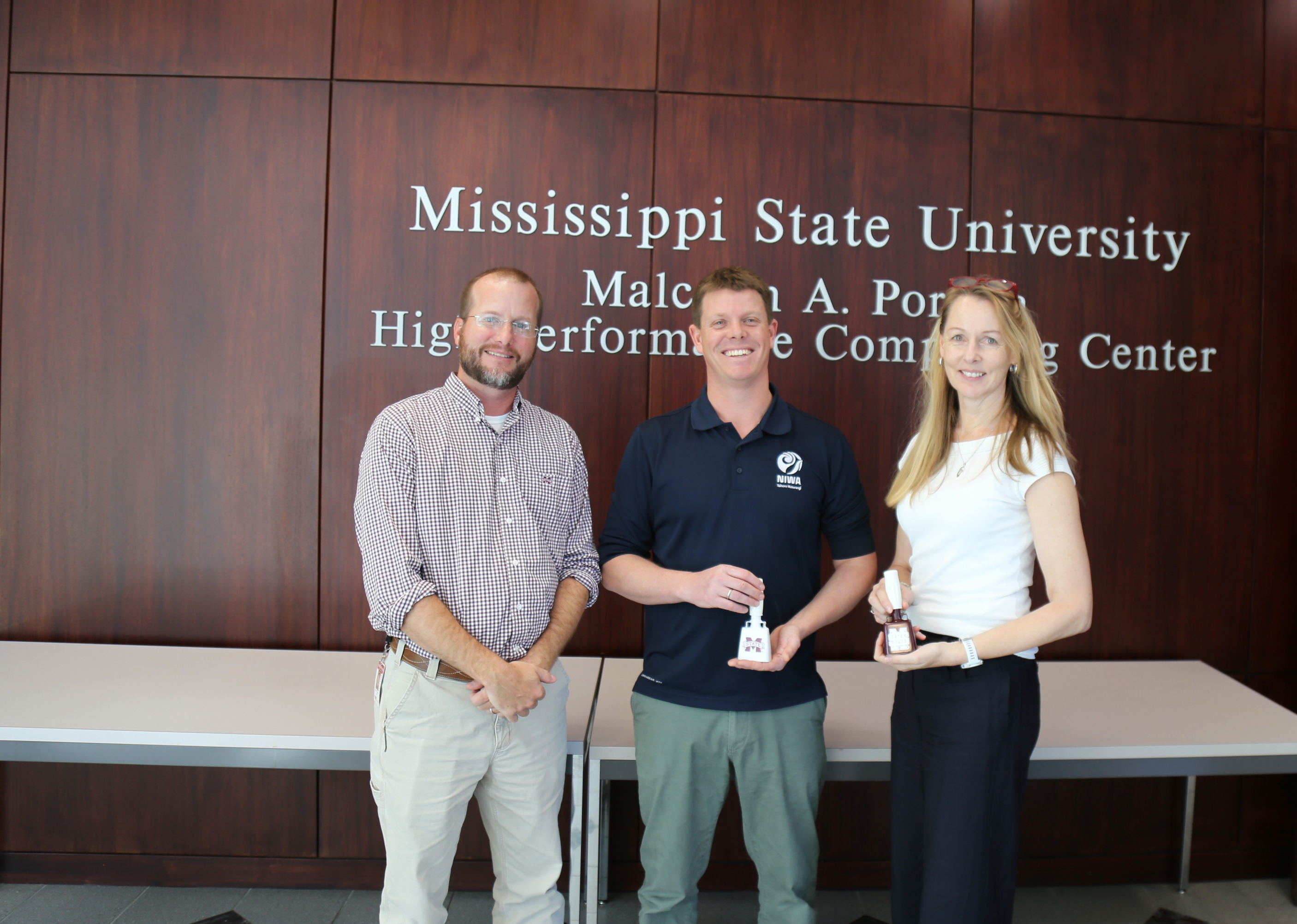News at the HPC²
MSU's Geosystems Research Institute Hosts New Zealand Researchers for Exchange on Freshwater Biosecurity
July 15, 2024
Dr. Gray Turnage, assistant research and extension professor with the MSU Geosystems Research Institute, presents cowbells to New Zealand National Institute of Water and Atmospheric Research scientists Dr. Daniel Clements (center) and Dr. Deborah Hofstra (right). (Photo by James Carskadon)
MSU's Geosystems Research Institute hosted Dr. Deborah Hofstra, leader of the NIWA's freshwater biosecurity program, and Dr. Daniel Clements, an NIWA freshwater ecologist for a series of presentations, meetings, and tours of MSU research facilities. The New Zealanders' work compliments research taking place at MSU in areas such as aquatic biosecurity and invasive species management, autonomous systems, artificial intelligence, and machine learning, as well as high performance computing.
In a campus presentation, Dr. Hofstra provided an overview of the NIWA's freshwater biosecurity programs, sharing how they fit in with the guiding national concept of "Te Mana o Te Wai," which prioritizes the health of freshwater and the well-being of the people that rely on it.
"Biosecurity is not the endgame of our work," Hofstra said. "Functioning ecosystems are."
Clements detailed how his team is using autonomous systems, AI, and machine learning to identify underwater invasive plant species, which would increase the efficiency and effectiveness of eradication efforts. The researchers have trained models to identify plants such as alligatorweed, which damages ecosystems in New Zealand and Mississippi.
"This species impacts waterways and productive land," Clements said. "It is one of the worst weeds in Australia and is currently spreading south in New Zealand."
During their time in Mississippi, Drs. Hofstra and Clements toured research sites such as the MSU High Performance Computing Collaboratory, aquaculture research facilities, and various Mississippi waterbodies impacted by invasive species.
"We appreciate Drs. Hofstra and Clements sharing their expertise with the MSU community as different departments around campus are working similar lines of research and facing similar challenges," said Dr. Gray Turnage, GRI assistant research and extension professor. "International exchange helps all of us move our research forward, grow our impact, and better manage natural resources."
By James Carskadon
